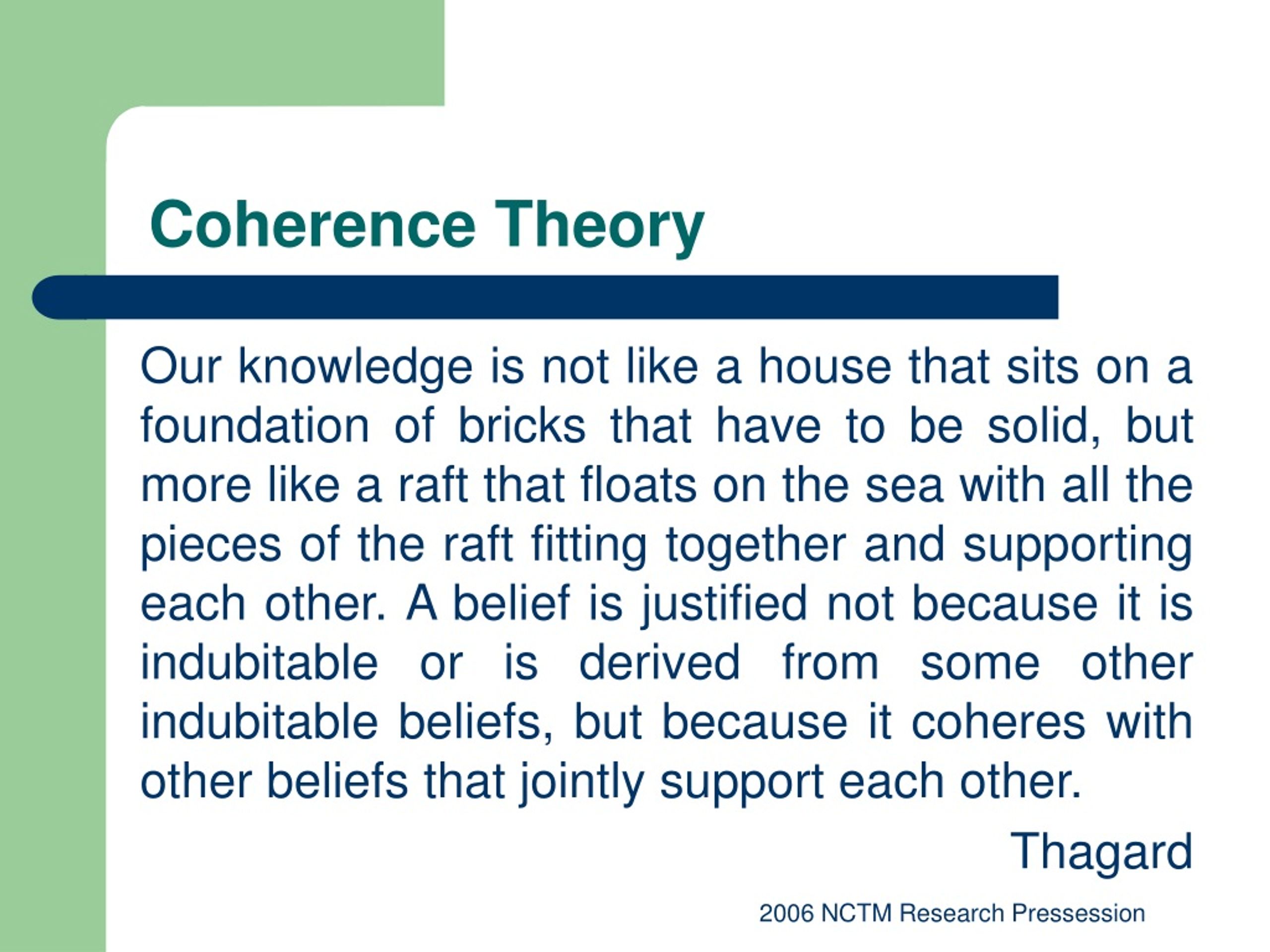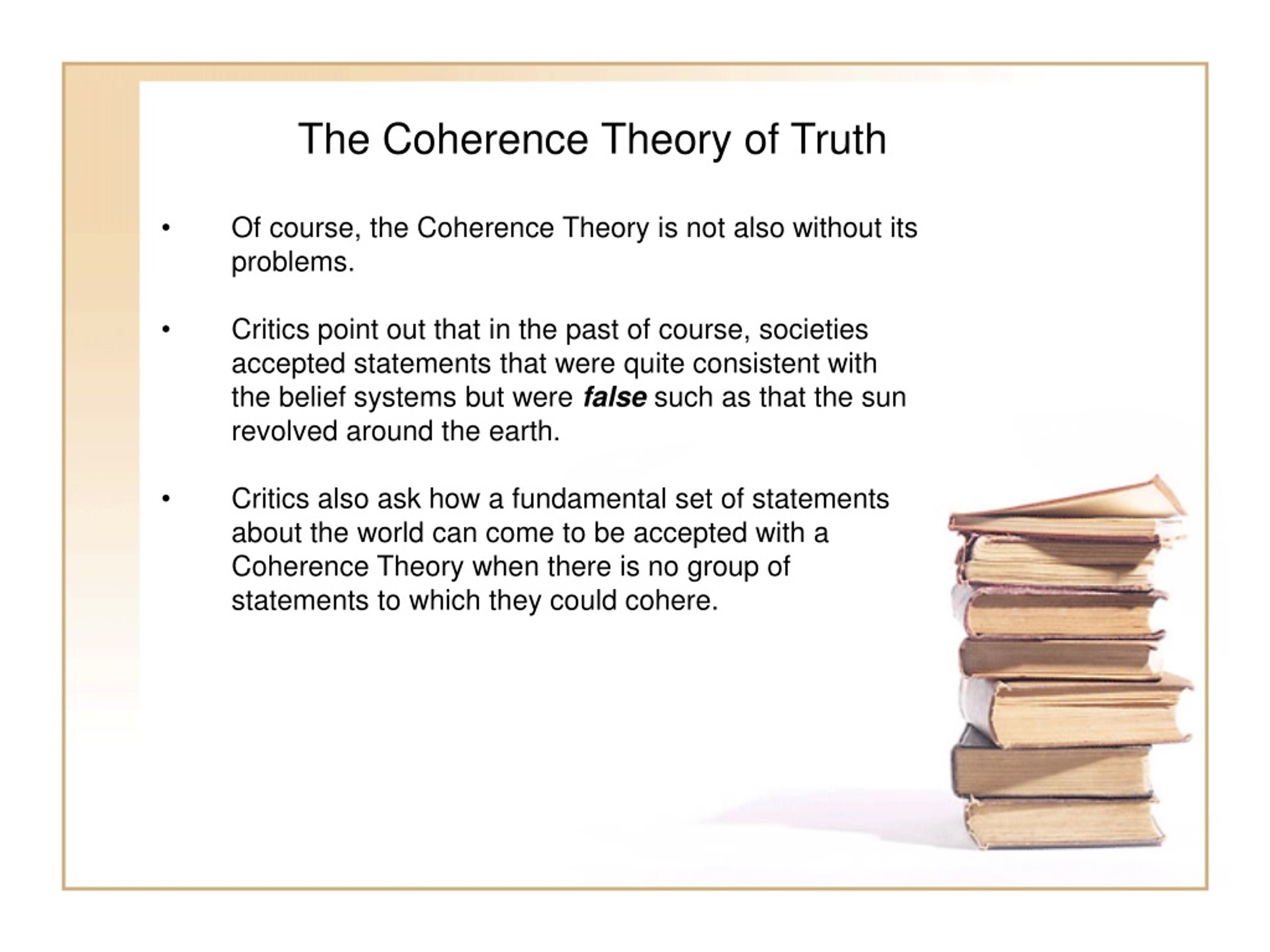

Bender (ed.), The Current State of the Coherence Theory, Philosophical Studies Series, pp. Lehrer, K.: 1989, ‘Coherence and the Truth Connection: Reply to my Critics’, in J. Lehrer, K.: 1988, ‘Metaknowledge: Undefeated Justification’, Synthese 74, 329–47. Lehrer, K.: 1986, ‘The Coherence Theory of Knowledge’, Philosophical Topics 14, 5–25.

Pappas (ed.), Justification and Knowledge, pp. Lehrer, K.: 1979, ‘The Gettier Problem and the Analysis of Knowledge’, in G. Bender: 1989, ‘Fundamental Troubles with Coherence’, in J. M.: 1948, ‘The Problem of Empiricism’, Journal of Philosophy 45, 512–17.ĭavis, W. Reprinted from Philosophical Studies 30 (1976), 281–312.Ĭhisholm, R. W.: 1988b, ‘Knowledge, Justification, and Lehrer's Theory of Coherence’, Philosophical Studies 54, 355–81.īonJour, L.: 1985, The Structure of Empirical Knowledge, Harvard University Press.īonJour, L.: 1986, ‘The Coherence Theory of Empirical Knowledge’, in P. But we must develop these more fundamental objections on another occasion.īender, J.

Coherence is, moreover, insufficient for justification, because it ignores the inferential structure of the subject's acceptance system, and requires no justification of any kind for the subject's acceptance system itself. Such beliefs may be justified even though there are no other propositions in the subject's acceptance system that makes them more probable than competitors. We would argue that coherence is unnecessary for justification because of the existence of ‘basic beliefs’, those about self-presenting states (‘I have a tingling sensation in my leg’) or self-evident truths (‘All men are men’). An explication of the Coherence theory of truth, including different version of coherence theories of truth, including idealistic theistic coherence, and obj. While our current objections are directed at the ‘letter’ of Lehrer's theory, other criticisms can be aimed at its very ‘spirit’. We would also argue more generally that if coherence is anything like what Lehrer's theory says it is, then coherence is neither necessary nor sufficient for justification. We have suggested solutions for some of the problems, but others seem irremediable. As a result, the definition of justification is both too weak and too strong. We have argued that Lehrer's definitions of coherence and justification have serious technical defects.


 0 kommentar(er)
0 kommentar(er)
